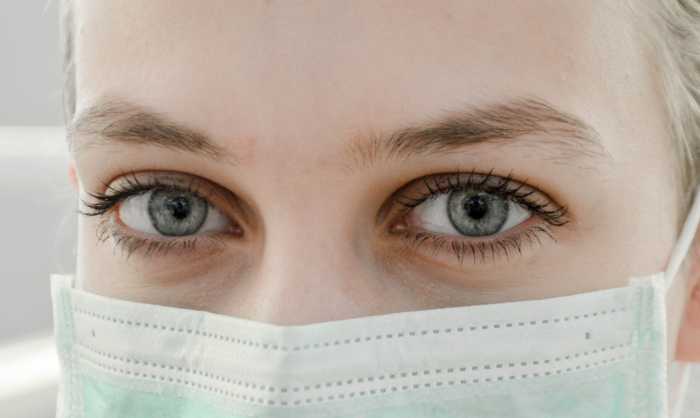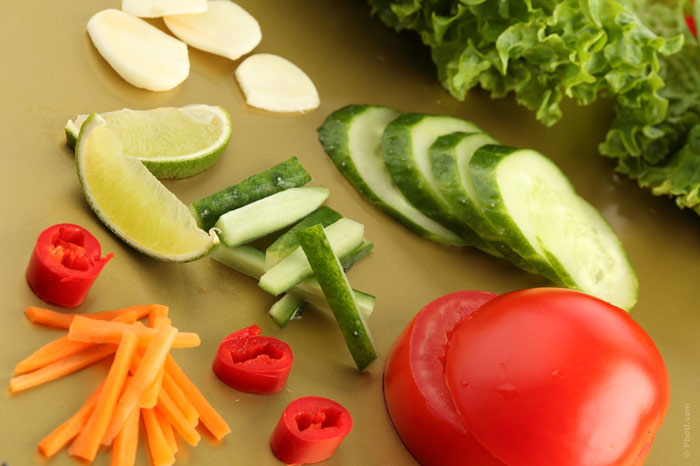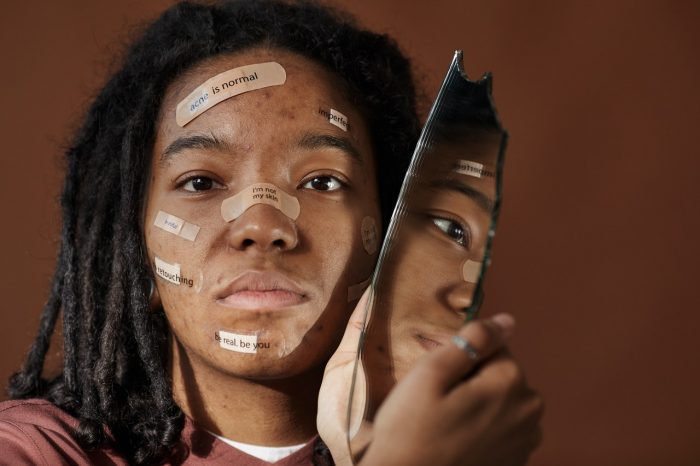Acne can seem like a never-ending battle for those who have it. Unlike other skin blemishes, you usually can’t hide it with clothing. Of course, in the era of the pandemic, some acne might get covered up by a face mask. Unfortunately, those masks certainly didn’t improve matters. They just exacerbated the problem and spawned a new name for blemishes: maskne.

If you have acne, you may feel as though you’ve tried everything to get it under control. But there may be some solutions you haven’t heard of yet. If acne-fighting face wash, retinoid, and antibiotics haven’t worked for you, it might be time to think outside the box. Here are four surprising ways you might be able to successfully treat your acne.
1. Adjust Your Hormones
Acne can be caused by an increase of androgens, male hormones that cause glands to produce more oil. Androgens become active in males and females during puberty. That increased oil production can clog pores which, in turn, produce blemishes.
Combination birth control pills can offer a solution to androgen overload. So gynecologists aren’t the only doctors prescribing birth control. Today, some dermatologists prescribe it to female patients struggling with acne.
Combination pills contain both estrogen and progestin. That one-two punch has proven to decrease androgen circulation which, in turn, slows down oil production. Contraception, lighter periods, and less painful menstrual cramps may just be bonuses.
There are other medications that reduce androgen production. Spironolactone, for example, has been prescribed for decades to treat excessive body hair, and it can treat acne. Even cyproterone, which has been used in combination with other medications to treat polycystic ovary syndrome (PCOS), has other advantages. It decreases testosterone levels and the oils they produce.
Talk to your dermatologist about medications that may reduce hormonal androgen production. You just might find one that will cap the oil well and clear up your acne.
2. Shake Up Your Diet

It may be a myth that eating greasy foods causes acne, but your overall diet can impact your skin. Eating healthier foods may help ward off blemishes.
Studies indicate that diets rich in fresh fruits and vegetables, healthy proteins, and whole grains might reduce outbreaks. Getting the right minerals, vitamins, antioxidants, and good fatty acids is good for the skin. A poor diet can cause inflammation and a spike in insulin, which are bad for your skin.
Insulin is among the hormones that increase oil production. Skip the high-glycemic carbs found in pasta, white rice and bread, and sugar. Opt instead for complex carbs found in legumes, whole grains, and unprocessed fruits and vegetables. For example, add carrots, leafy dark greens, whole grain bread, blueberries, brown rice, nuts, and lentils to your diet. Omega-3 fatty acids found in eggs and in fish, like salmon and mackerel, may also improve your skin.
In other words, it may be time to add some American classics, like cheeseburgers, to your “do not eat” list. An overload of trans and saturated fats, dairy, and simple sugars isn’t doing your skin any favors. Studies indicate that they’re associated with inflammation, hormones, and insulin production, which can worsen acne.
Make sure you discuss any allergies and other medical issues, such as diabetes, with your doctor before making dietary changes. A wholesome diet that’s great for your heart, weight, and blood sugar might also be good for your skin.
3. Take a DIY Approach

Treating acne can get expensive. The cost of medications, creams, cleansers, prescriptions, and other common solutions add up. If you’re throwing good money after bad into treatment, maybe it’s time to try a DIY solution.
There are a few home remedies you can make if your medications aren’t working. Although these preparations haven’t been put through the paces of scientific studies, some have worked for some acne sufferers anecdotally. They’re often inexpensive, and the ingredients are usually easy to find.
Instead of just eating an egg that’s rich in omega-3 fatty acids to reduce acne-causing skin inflammation, wear one. A face mask made of egg white, and a couple of other ingredients, may improve your skin. Try a mixture of beaten, stiff eggwhite, lemon juice, and honey. Once applied to your face, let it sit for 15 minutes, then rinse with warm water. Just make sure to test it on the back of your hand first to make sure that you’re not allergic.
You can also mix a teaspoon of honey with a cup of plain oatmeal and apply the mask for 30 minutes. Honey is chock full of antibacterial benefits. Oatmeal has both antioxidant and antiinflammatory properties.
Even easier, wrap an ice cube in a thin cloth and place it on pesky pimples. You might be able to freeze out the inflammation and reduce the appearance of blemishes. A cooled green tea bag might produce the same result.
Home remedies may not work for everyone, but simple ingredients may just be a simple solution for acne relief.
4. Change Your Routine
Besides hormones and oils, acne is affected by bacteria, humidity, sweat, and other things that might clog your pores. Become aware of habits that might contribute to clogged pores, and change them.
Start by looking at your daily routine, starting with your cell phone. After all, your cellphone is far from clean and it continuously picks up bacteria. Every time you bring it to your face, you’re transferring bacteria to your cheeks, jaw, and ears.
If you have breakouts on your cheeks and along your jaw, your phone may be the culprit. Clean your cell phone, and wash your hands. Use your earplugs or speaker feature to avoid the spread of bacteria.
The next thing on your routine checklist should be your bed. How often do you wash or change your pillowcase? Your face rests on it all night long, absorbing oil, makeup residue, and drool. That wicked acne-causing concoction transfers to your skin and fills your pores.

After you deal with your phone and pillowcase, examine your other habits. How often do you touch your face? Hopefully, you’ve already worked to break the habit to reduce the risk of getting COVID-19. If not, get motivated twice over. Avoid COVID-19 and the pore-clogging bacteria that cover your hands. This includes changing sleeping habits so that you’re resting your cheek on your clean pillowcase, not on your hand.
Washing your face frequently, especially before you hit the hay, will help keep oil and bacteria away. Wearing makeup to hide blemishes is a vicious pore-clogging cycle, so go barefaced when you can. Ultimately, you may be surprised at the number of things you do on a daily basis that are bad for your skin.
While it may sometimes seem like it, the pharmacy isn’t the only place to find a cure for acne. Don’t be afraid to try something a little different to improve your skin. Plus, think of all the added bonuses of these treatments. From fewer cramps to healthier eating, you’ll improve more than just your skin.










